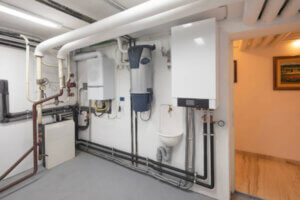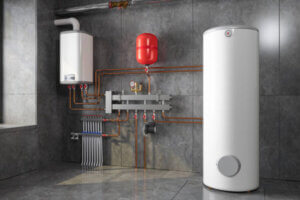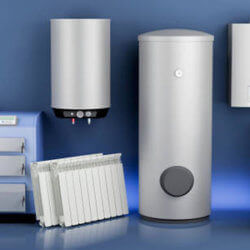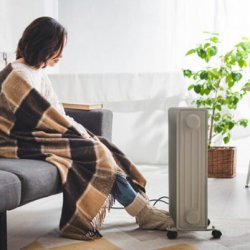
Known for our chilly winters, St. Louis homeowners need a quality heating system that will keep them warm and cozy. If you are looking to upgrade your heating system or replace your furnace, this post takes you through all the key points of choosing the best heating system for your home. For more guidance and help choosing the best furnace for your home, contact Galmiche and Sons at 314-993-1110 or reach out via our contact form online. As a leading HVAC company serving the St. Louis area since 1950, our heating and air conditioning experts can answer all of your questions and help you select the best system for your home.
Factors to Consider When Selecting a Residential Heating System
While there are a lot of options to consider, identifying the right heating solution for your home boils down to certain factors. These include:
- The size of your home: Your home’s size and layout will determine the ideal capacity and distribution your heating system must have. Our experts can assess the square footage, insulation, and airflow to recommend a suitable size system.
- Energy efficiency preferences: Do you prefer a heating solution that reduces your heating costs and affects the environment minimally? We can introduce you to energy efficient heating options that fit within your budget and meet your needs.
- Your heating needs: The best heating system for you will naturally meet your specific heating needs. With this in mind, you may need to decide whether you want your new system to heat your entire home or just a few rooms.
- Boiler vs. furnace: Most modern homes in America are built with ductwork, making furnaces a logical choice. Older homes with pipes have boilers. While each type of heating method has its pros and cons, adapting your home for a boiler can be inefficient and costly unless there’s already a radiant heating system.
- Budget: Budget and costs are obviously an important factor when choosing the best furnace or heating system. You will want to approximate any upfront cost, running costs, and long-term savings you can expect to determine the best heating system for your needs.
What Are the Heating System Options Available for Your Home
Boiler
A boiler heats water and circulates it throughout your home through a series of pipes. It provides consistent and even heat but costs more than a furnace, has a complex installation, and tends to freeze in extreme weather.

Furnace
A furnace (also called a ducted warm-air system) blows heated air through ducts that deliver the warm air throughout the house via vents. It runs on electricity, propane, natural gas, or oil. A furnace is less expensive and easier to install than a boiler, and you don’t have to deal with water pipes or leaks. But it requires regular maintenance, which you can entrust to the trusty technicians at Galmiche and Sons.
Ductless Mini-Split
If energy efficiency is your main priority, give some thought to mini-split heating systems. A mini-split heat pump is a ductless heating system consisting of an outdoor unit (compressor or condenser) and an indoor unit (air-handling unit mounted on the wall of a room). This reduces the heat and energy loss common in ducted systems. On the flip side, mini-splits can be expensive to heat an entire home and require expert placement to avoid any defect that may result in energy being used less efficiently, defeating the purpose of purchasing this heating system. Mini-splits may be the best heating system if you only need to heat individual rooms or zones.
Portable Air Conditioner with Built-In Heat Pump
A compact, portable AC is a free-standing unit placed on a floor and can be shifted from room to room. It has a high sticker price and lower heating capacity. Portable ACs may be a consideration in areas where installation of a permanent heating system can be a problem.
Electric or Gas Space Heater
Powered by natural gas or propane or electric, a space heater heats a specific area or room. Gas heaters have a combustion chamber, burner, and heat exchanger that transfers heat from the burning fuel into the surrounding air. The heated air is blown into the room through a fan or via a radiant heat panel. Gas space heaters are efficient, but must be vented outside of the room for safety. Electric space heaters are more flexible, but can be costly to run.
Consult Galmiche and Sons for Help Choosing the Best Heating System for Your Needs
Choosing the right home heating system is a matter of comfort, convenience, and money. Make smart decisions with experience-backed advice from our technicians. Call us at 314-993-1110 or contact us online to request a quote for your new HVAC system.












